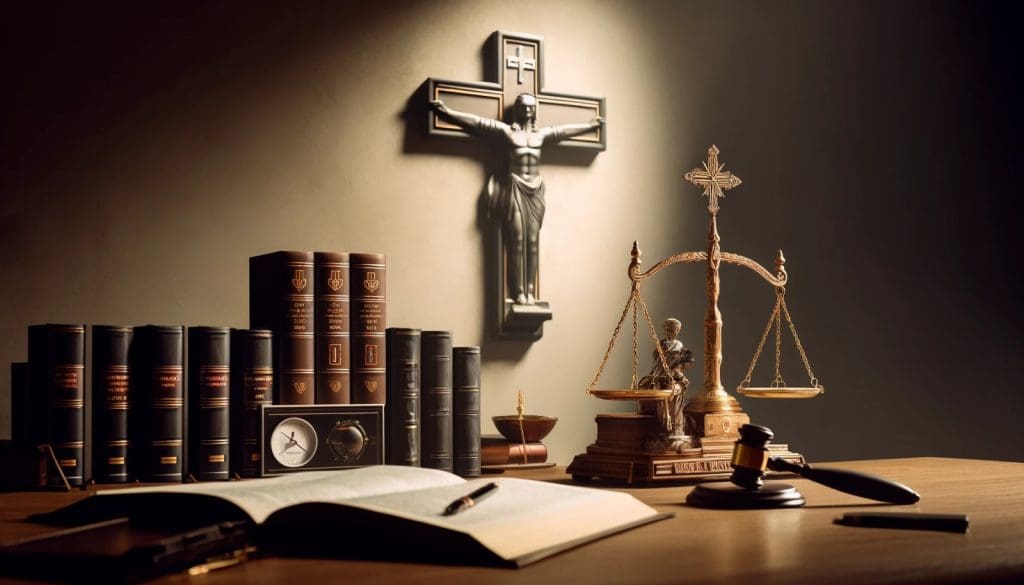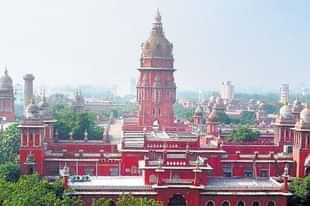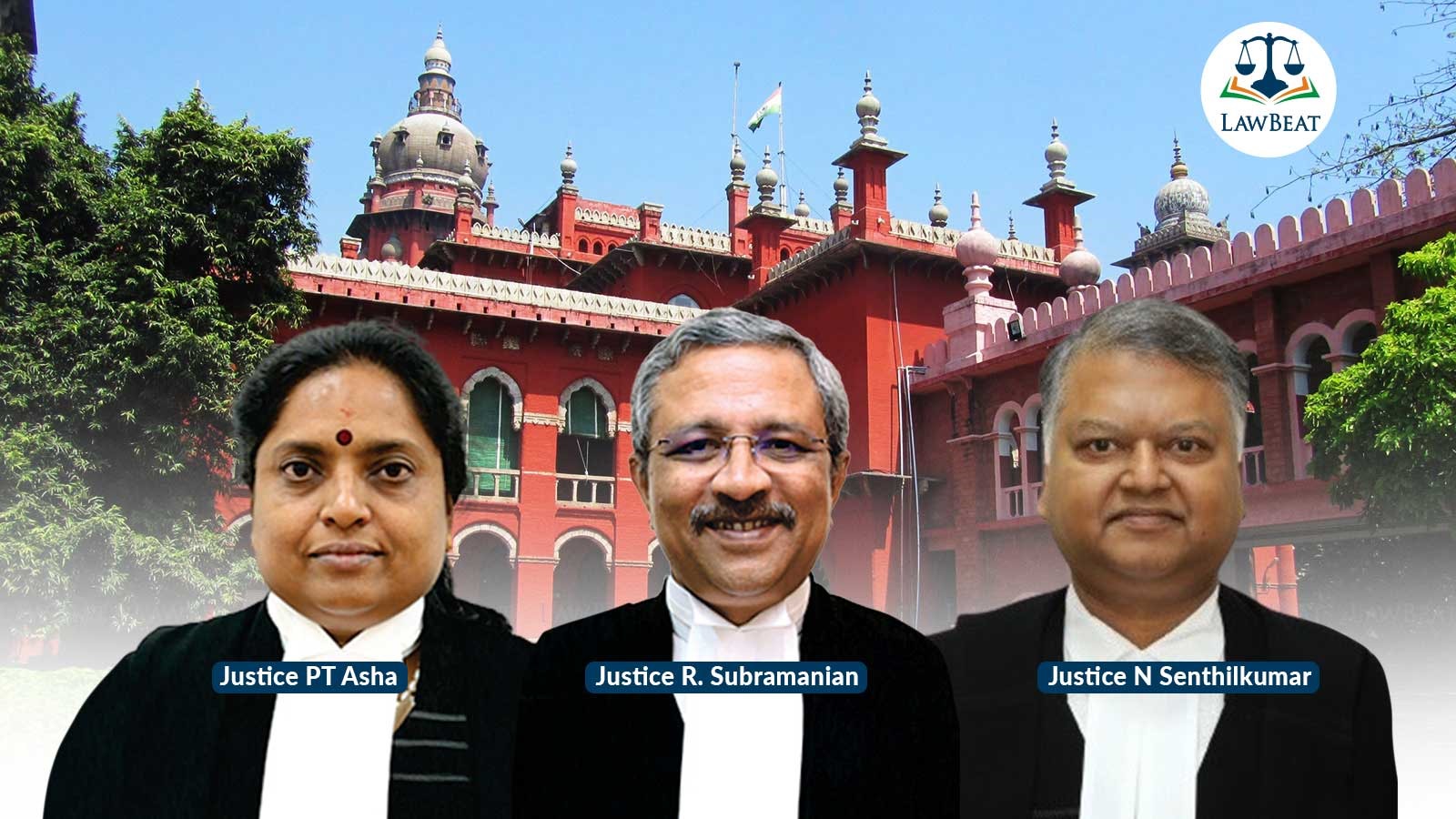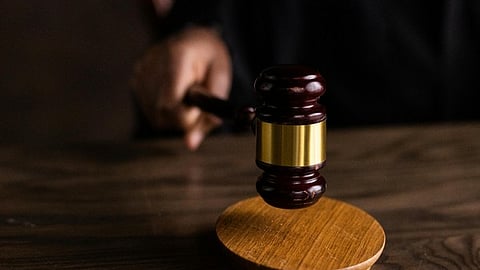IN THE HIGH COURT OF JUDICATURE AT MADRAS
DATED: 05.06.2024
CORAM
THE HONOURABLE DR.JUSTICE ANITA SUMANTH
W.P.No.14375 of 2024
& WMP.Nos.15617 & 15618 of 2024
Rev. B.Devaprasad .... Petitioner
Vs
1. Church of South India,
Represented by its Administrators,
CSI Synod Secretariat,
CSI Centre, No 5, Whites Road,
Royapettah, Chennai – 600 014.
2. The Diocese of Madras,
Represented by General Secretary,
226, Cathedral Road,
Chennai 600 086.
3. Rev. Paul Francis
4. Rev. G. Welington Jesudoss
5. Rev. D.John Earnest Davidson
6. Rev. D.Mohanraj
7. Prof Dr.J.Samuel Cornelius
.... Respondents
Prayer: Petition filed under Article 226 of the Constitution of India
praying to issue a Writ of Mandamus directing the 1st respondent herein
for recounting of the votes by the Committee of Administrators/person
appointed by the Committee of Administrators in presence of all the
https://www.mhc.tn.gov.in/judis
1/6
� W.P.No.14375 of 2024
nominees contested in the Bishopric election of 2nd respondent on
14.05.2024 based on the petitioner's representation dated 17.05.2024
within a time period stipulated by this Hon'ble Court.
For Petitioner : Mr.Vineet Subramani
for Ms.C.P.Niveda
For Respondents : Mr.Ravikumar Paul (R1)
Senior Counsel
for M/s. Paul & Paul J. Hudson Samuel
& Partners
ORDER
The petitioner claims to be a communicant member of the Church of South India (CSI). The CSI has 24 dioceses each administered by a Diocesan Council headed by a Bishop. The petitioner is an aspirant for the post of Bishop of the Madras diocese and had stood for election for that post.
2. The procedure followed comprises both election and selection, in that Members of Dioceses elect four individuals to constitute a shortlist for the post of Bishop. The list is then forwarded to the Synod of the CSI which selects one of the four persons, for the position of Bishop.
3. In the present case, the petitioner has not made it to the shortlist and aggrieved seeks a mandamus directing R1, being the CSI represented by its Administrators, to be directed to re-count the votes in the presence https://www.mhc.tn.gov.in/judis of all nominees who had contested in the Bishop election held on 14.05.2024. The petitioner has not challenged the election per se.
4. The prayer is itself resisted by Mr.Ravikumar Paul, learned Senior Counsel for M/s.Paul and Paul for R1 on the ground that it is not maintainable.
5. The election has itself not been challenged and, in my view, having not questioned the election, there is little merit in seeking a re- counting of votes. In any event, there is yet another development that is relevant in the matter.
6. In a separate stream of litigation, O.S.A.No.198 of 2024 and connected appeals had been filed before this Court touching upon various issues relating to the functioning of the CSI and connected issues. It is unnecessary to refer to the issues per se.
7. Suffice to state that the OSAs were allowed and the Bench had thought it fit to appoint a Committee of Administrators comprising Justice R.Balasubramanian and Justice V.Bharathidasan, retired Judges of this Court to take immediate charge of the administration of the Church of South India as well as the Trust Association and administer the same till such time the elections of the Diocesan Councils are completed.
8. The aforesaid order was carried in appeal in SLP Nos.9079- https://www.mhc.tn.gov.in/judis 9081 of 2024, wherein, on 22.05.2024, the following order has been passed:
“1. Permission to file special leave petitions is granted.
2. Heard the learned senior counsel/ learned counsel for the petitioners as also the learned senior counsel/ learned counsel for the respondents who have entered appearance on caveat, at a considerable length. However, due to paucity of time, the arguments could not be completed.
3. Hence, list the matters in the 3rd week of July, 2024 on a nonmiscellaneous day for further hearing.
4. The learned Advocates on Record for the respondents, who have entered appearance on caveat, accept notices on behalf of their concerned respondent(s).
5. Issue notice to the unrepresented/ unserved respondent(s) in all the petitions.
6. In addition, Dasti service is permitted.
7. Having regard to the facts and circumstances of the case and without expressing even any prima facie opinion on the merits of the cases, it is hereby directed that the Administrators appointed by the High Court vide its impugned order dated 12th April, 2024, shall not take any decision either with regard to the holding election or administration of the Church of South India (CSI) and the CSI Trust Association till the next date of hearing.”
9. With the order passed by the Hon'ble Supreme Court on 22.05.2024, there is a stalemate with regard to the functioning of the CSI https://www.mhc.tn.gov.in/judis itself, as the Administrators appointed cannot take any decision either in regard to the holding of elections or administration of the CSI and CSI Trust Association, till the next date of hearing which has been fixed in the third week of July.
10. At this juncture, Mr.Vineet Subramani, learned counsel for the petitioner would only point out his apprehension that the votes in respect of the four persons selected to the shortlist are to be retained securely to ensure integrity of the election.
11. Mr.Paul for his part would submit that all votes have been handed over in a sealed cover to the Administrators which is now in their custody. With this, the grievance of the petitioner does not survive any further. As regards his prayer for re-counting he is at liberty to make such request before the Administrators themselves and it is for them to take a decision after hearing the petitioner and in line with the relevant rules and regulations, subject to orders from the Supreme Court in SLP Nos. 9079-9081 of 2024.
Dr.ANITA SUMANTH,J.
https://www.mhc.tn.gov.in/judis
12. With this, this Writ Petition and the connected Miscellaneous Petitions are closed. No costs.
05.06.2024 Sl Index:Yes/No Speaking order:Yes Neutral Citation:Yes To
1. Church of South India, Represented by its Administrators, CSI Synod Secretariat, CSI Centre, No 5, Whites Road, Royapettah, Chennai – 600 014.
2. The Diocese of Madras, Represented by General Secretary, 226, Cathedral Road, Chennai 600 086.
& WMP.Nos.15617 & 15618 of 2024 https://www.mhc.tn.gov.in/judis



